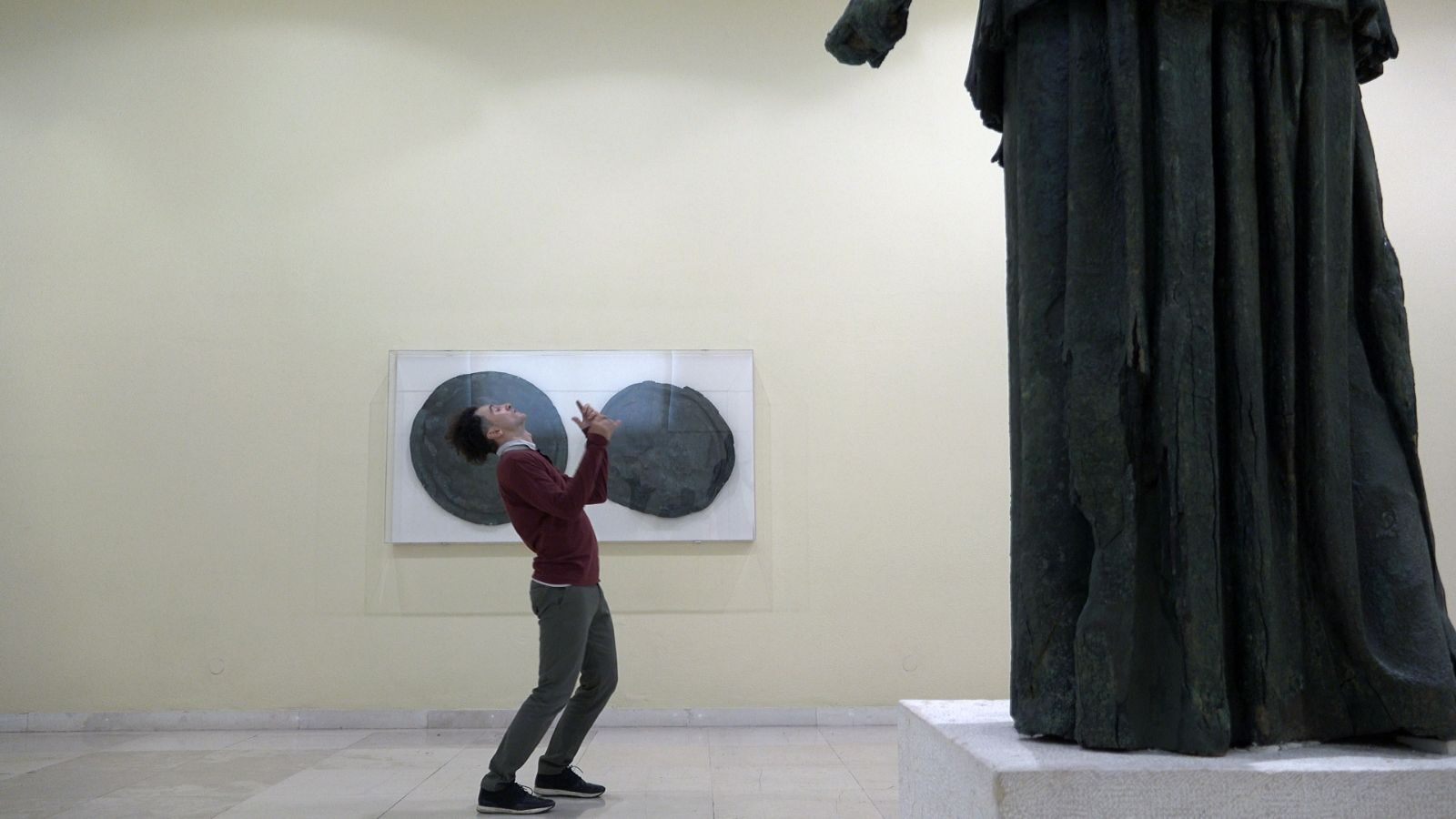We watched Exergue, Dimitris Athiridis’s 14-hour documentary about the one that went wrong, so you don’t have to
I recently revisited my notes on Documenta 14 and recalled a rough calculation I’d made. After flicking through the various press releases I’d accumulated at the quinquennial exhibition, I estimated that, given the number of video pieces involved, it would take around a month to see everything presented in full – in both its traditional venue of Kassel and in Athens, where a portion of the exhibition decamped to for the first time since its founding in postwar Germany in 1955. The Greek director Dimitris Athiridis’s 2024 documentary film, Exergue – on documenta 14, is shorter, but an imposing proposition nonetheless. It clocks in at a full 14 hours, edited down from two years of footage recorded from the summer of 2015 as preparations for the exhibition were underway. Given its outsized runtime, it is perhaps telling that the film premiered in New York last year to a muted reception, and coverage of its various appearances at international film festivals since has been limited. Even chopped into five-hour instalments, sitting through it is a feat of endurance that requires a bladder of iron and a sense of commitment to rival its maker’s own. So it was that in the early evening of Easter Sunday, I emerged from a three-day screening at London’s ICA with an aching back, a warped perception of time and several nagging indications that a colossal anxiety attack was on its way.
As for what to make of this berserk endeavour as a work of art – well, that is less clear. Held in the summer of 2017, Documenta 14 was famously the one that went wrong. So wrong, in fact, that it became a byword for curatorial mismanagement: in Germany it was pilloried as a budget-busting extravagance that indulged a spendthrift foreign nation with yet more domestic taxpayer money; in Greece, as an agent of gentrification and German cultural imperialism. Exergue, then, could be read as a belated riposte to the event’s numerous critics. Or more bluntly altogether, as an exercise in reputational whitewashing on behalf of its protagonist, Documenta 14 artistic director Adam Szymczyk, who Athiridis met by chance in Thessaloniki in 2015 and decided to follow with his camera as the exhibition took shape.
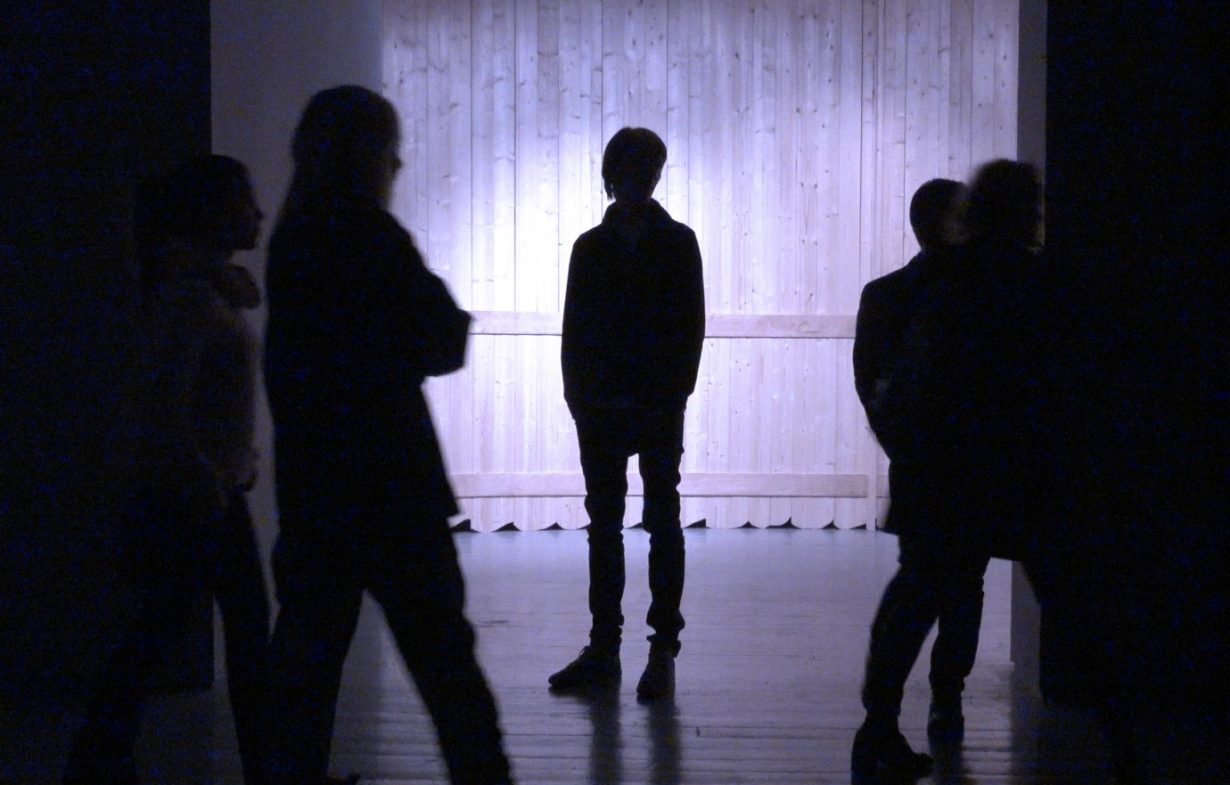
There isn’t, in fairness, any pretension to fly-on-the-wall objectivity at play here. Athiridis’s camera loves Szymczyk, an elegant rock star-manqué clinging to an aesthetic that might now be described as ‘Indie Sleaze’. Framed as an everyman who has somehow wound up in charge of Europe’s biggest agenda-setting art exhibition, he is presented in such a way as to elicit audience sympathy at every turn: when we feel exasperated by monologues bureaucratic, financial or curatorial, from a dizzying number of collaborators, the shot will cut to him rolling his eyes or sparking yet another cigarette to suffer the tedium; when a performance or a meeting starts to get on his nerves, he gets up and leaves the room. He is by turns funny, petulant and bloody-minded, and by the last hour of the film’s broadly chronological sweep, he is a nervous wreck. After more than half a day vicariously revisiting his struggle, so are we.
Szymczyk’s proposal, accepted in 2013, was a template for a biennial curatorial model that became commonplace in years to come: his ambition was to mount a multinational show that revisited art history as a more pluralistic concern than ever iterated, reorienting the focus more towards the ‘Global South’ and the former communist world. Still, Athiridis gives him too easy a ride: he wants money from sponsors, but is unwilling to appear friendly or even cooperative with them in public; he is transparently revolted by the neoliberal inflexibility of Germany’s conservative government, upon which Documenta funding relies; and his curatorial rationale for mounting a shadow exhibition in Athens appears shaky at best. In the early hours of the film he declares that he has chosen the Greek capital as a metonym ‘for the rest of the world that is lacking privilege’. For all Exergue’s indulgence towards him, you can’t help but get the sense that his primary motive for going Greek comes down to the fact that he just really – understandably – didn’t want to be in dreary Kassel.
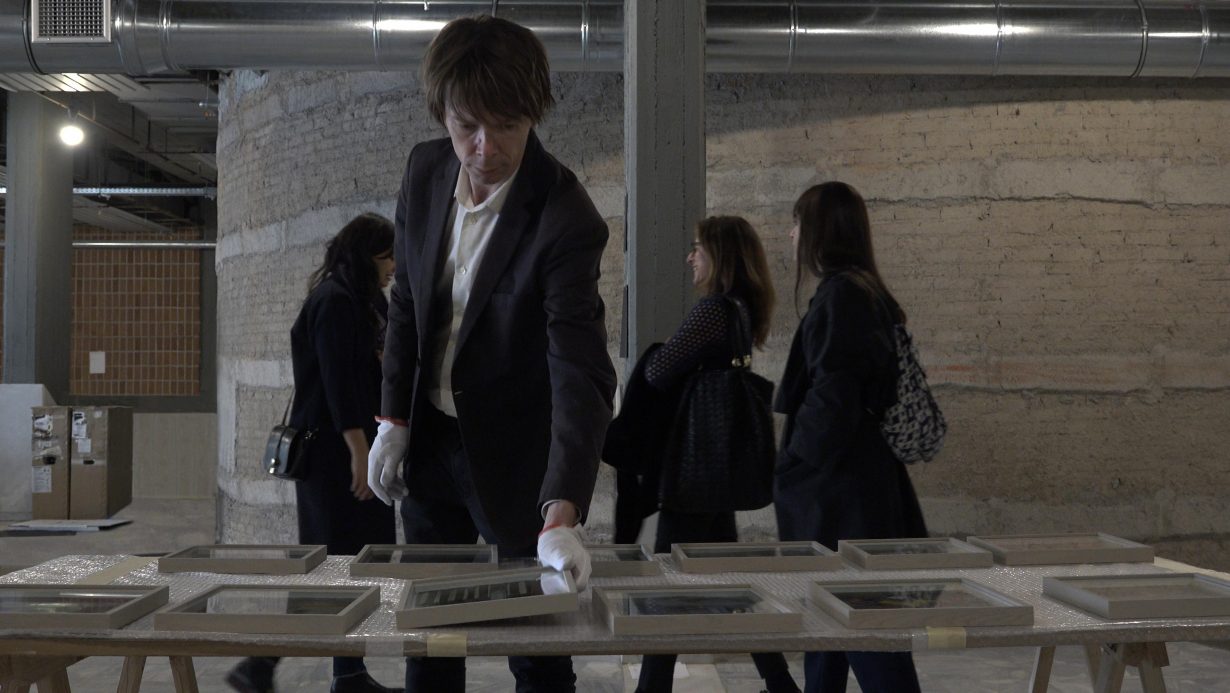
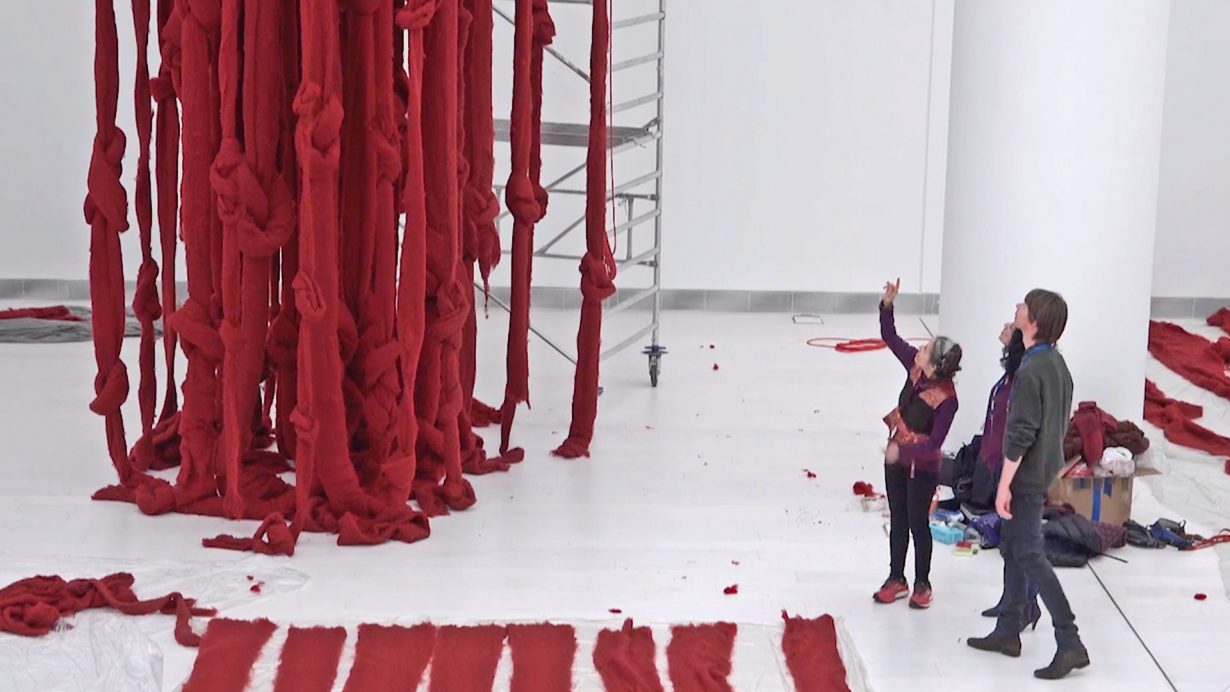
Meanwhile, world events caught him off guard. In 2015, when filming of Exergue commenced, Donald Trump was just a reality TV star with delusions of grandeur, the ‘culture wars’ as yet a term uncoined. And in addressing the upheaval of the recent past, Athiridis has a lot of fun with his editing. Montages of historical events mediated by news reports are by now a cliché of documentary cinema, but there are some extraordinarily imaginative instances of the type here: in a section on the 2015 Greek banking crisis, for instance, a newsreader’s report almost keeps in time with the punk-ish guitar riffing the filmmaker has bolted onto the soundtrack. Reaction shots of the Documenta team watching reports on their smartphones stand in for the general public astonishment that met Greece’s banking collapse, Brexit, a coup in Turkey and America’s dramatic turn to illiberal democracy. Then come the curators’ disbelieving gawps as they attempt to square their ambitious project over a gaping budget hole that appears just months before the exhibition’s opening. All this is edited to the rhythm of a workplace comedy, and it is often genuinely funny: the obvious comparison would be Ruben Ostlund’s film The Square (2017), but it really falls somewhere between Alejandro González Iñárritu’s Broadway metacomedy Birdman (2014) and the workplace ennui of The Office (2001–2003).
In this regard, there are great lines and stellar cameos. Around halfway, the Scottish artist Douglas Gordon turns up in Athens, declaring that he feels ‘rubbish’ and demanding to know the location of the nearest hospital – he is, he says, “about to have a breakdown in the next 15 minutes”; the costs of Argentinian artist Marta Minujin’s The Parthenon of Books (1983) – its immense scale and positioning directly outside the Fridericianum making it the emblematic work displayed in Kassel – leave Documenta’s accountants incredulous: “Couldn’t we just, like, build the real Parthenon for that?”, one asks; Szymczyk’s final, hungover meltdown, delivered over the phone moments before his opening speech to an audience of Athens grandees, sees him declaring that his only ambition is to “take a shit and go to sleep for five years”.
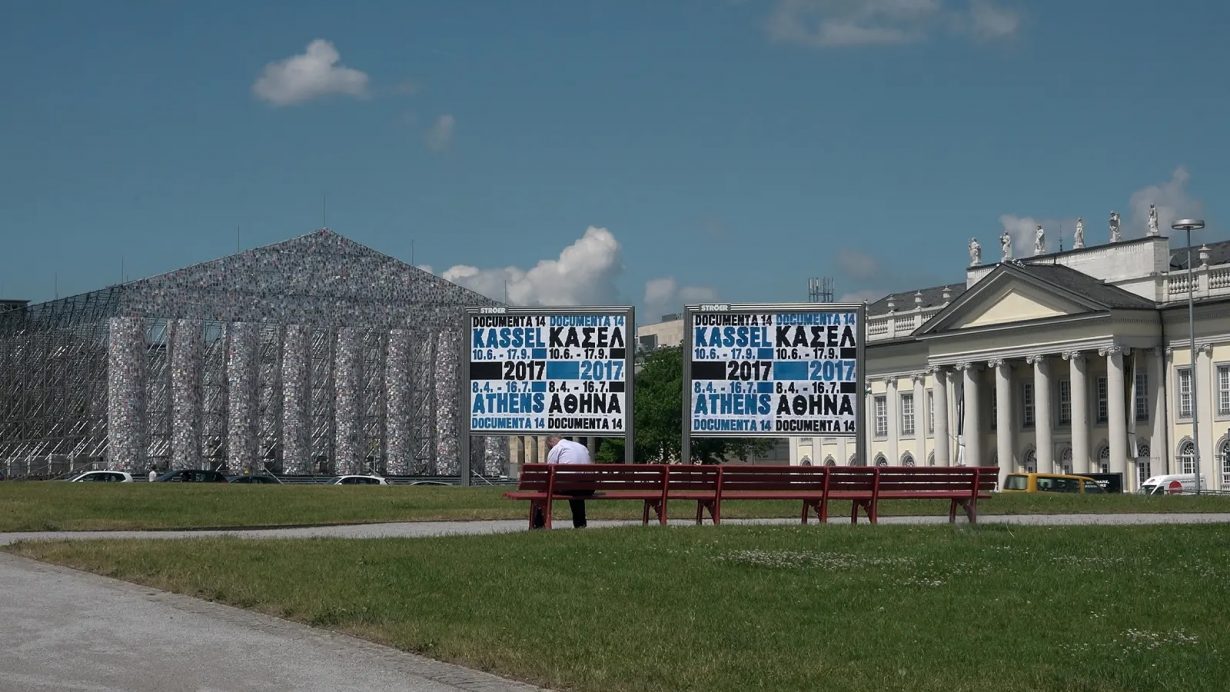
The lasting impression you get, though, is that Szymczyk and his underlings really do care about artists in an unfashionably earnest sense: they fight their corner at every turn, and the transparent horror of their collective reaction when a sponsor drops out, or when they are forced to shave €110,000 from their budget in a matter of minutes, is evident. Athiridis also makes the case that the financial drama surrounding the edition was a pseudo-controversy concocted by Artnet and the local press. An intertitle relates that the financial overreach wasn’t anywhere near as severe as suggested in certain publications, which quoted figures up to €12 million: in the end, it came to €5.4m – “a third of a German tank”, as Szymczyk declared at a Berlin Gallery Weekend event shortly after the fact.
Whether you’re onboard with this messaging or not will depend on your humour, and for my part I remain equivocal. I’m not sure I fully accept Szymczyk’s argument that it was all a manufactured controversy; after all, he accepted the role of artistic director and must have been fully aware of the potential pitfalls. One thing does sway me to his position, however: Documenta 14 was not the ‘radical’ exhibition some in this film claim it to be, but discussion of its failings has faded away since its (genuinely radical, and entirely unsaleable) ruangrupa-curated successor in 2022. That event, as you might recall, was dogged by accusations of antisemitism and, in more rarefied quarters, its lack of commercial potential. Szymczyk’s Documenta cast a long shadow over the artworld that still hovers: to my mind, it was an impressive achievement that stands shoulder-height above the parade of international art exhibitions that borrowed its intellectual framework over the decade that followed, from Adriano Pedrosa’s 2024 Venice Biennale downwards.
Nor was this the only respect in which it set a precedent: given the response to its successor, and the managerial and political chaos that has so far beset the planned 2027 edition, it could well be argued that it established a concrete association between the words ‘Documenta’ and ‘shitshow’. Szymczyk, you sense, may feel it deserves everything coming to it.
Digby Warde-Aldam is a writer based in Paris. He is the visual art editor of The Week
